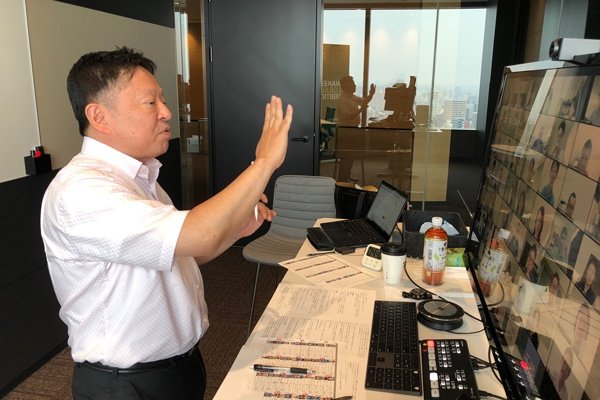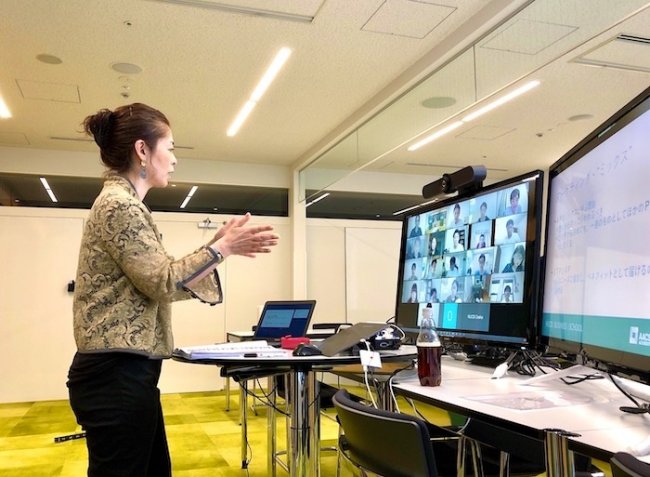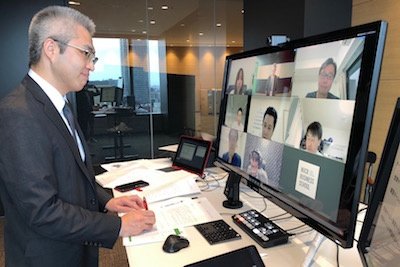MBA courses are offered online, allowing students to learn the basics of MBA in just two days on weekends, starting with one course. This time, Professor Yasuhiro Ochiai will introduce "Business Succession and Reform," an innovation of a long-established family business. This class focuses on the case of business succession, which has been one of the most important issues in family business research, and analyzes the complex phenomenon of family businesses from multiple perspectives, multiple angles, and over time. Rather than learning about family business theory as knowledge on how to use good cases, we will use the case method to read and examine the contents of the cases to understand the situation, evaluate the business, and make decisions about management in the events that occur in managing a family business.
On the second day of class, we used a case study on the governance of a family business to learn about the relationship between the successor and the current or previous owner, as well as the characteristics of business succession. Unlike the founder, the successor must go through a unique process of gradually cultivating legitimacy over time, as he or she must gain not only experience and achievements inside and outside the company, but also trust to be the next leader in order to gain legitimacy as the next manager. If the successor assumes the top position without gaining this legitimacy, he or she will not be able to gain cooperation from within the company, and it will be difficult to achieve "innovation" under the new leader. In addition, de-commitment may occur between management and employees, and even if outside directors and an audit committee have been established on the organizational chart, governance may not actually be effective, making it impossible to stop management from running amok. In light of these characteristics of business succession, Dr. Yasuhiro Ochiai presented the participants with questions that deepened the discussion, such as what kind of governance system should be established to prevent the generation of innovation by successors, the role of the current management in governance, and the role of local communities and stakeholders. Through the discussion based on these questions, we were able to come to a consensus on what we should do. Through discussions based on these questions, the students were able to get a closer look at the essence of family businesses, which continue to strive to manage their businesses while teetering between tradition and innovation.

 Brochure
Brochure
 Info Session
Info Session
 Application
Application
 Alumni Voices
Alumni Voices












